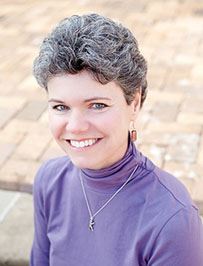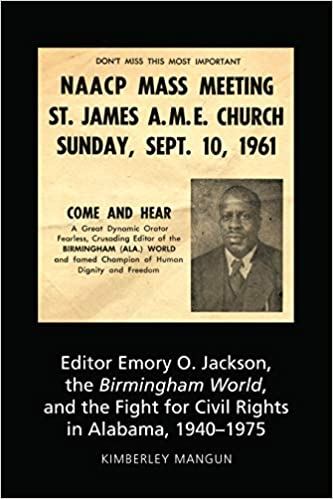Please introduce yourself and include your connections/role with AJHA.

Like many longtime members, my involvement with AJHA began as a graduate student. I presented research as a master’s student at the 2001 convention in San Diego and discovered a welcoming and supportive group of people. Participation in subsequent conferences enabled me to practice presentation skills, get feedback on projects, and prepare for the job market. In fact, I was informally interviewed for a position at the University of Utah during the history tour that was part of the 2005 San Antonio convention. Also at that convention, I was elected to the Board of Directors. In 2010, I was elected second vice-president of AJHA and began a rotation through the senior leadership roles.
During my 20-year affiliation with AJHA, I’ve also served as coordinator and host of the Donna Allen Luncheon; chair of the research-in-progress paper competition; reviewer for both RIPs and papers; reviewer and board member for American Journalism; and cohost of AJHA’s 2018 convention in Salt Lake City.
Salt Lake City has been my home since 2006, when I accepted a tenure-line position in the Department of Communication at the University of Utah. I teach the introductory news writing class, the capstone journalism class that focuses on diverse beat reporting, and the required course on mass communication history.
What drew you to your topic/time period?
 I became interested in the Black press during my doctoral program at the University of Oregon. A study of Ida B. Wells and her anti-lynching crusade sparked my interest in Black newspapers and how editors used them to create community and advocate for civil rights.
I became interested in the Black press during my doctoral program at the University of Oregon. A study of Ida B. Wells and her anti-lynching crusade sparked my interest in Black newspapers and how editors used them to create community and advocate for civil rights.
My dissertation focused on Beatrice Morrow Cannady, editor of the Portland, Oregon Advocate, and her activism for Black Oregonians during the 1920s and 1930s. I then studied other Black newspapers in the West while working on a documentary about Cannady for Oregon Public Broadcasting and preparing a book manuscript for Oregon State University Press.
Just when I was thinking about my next project, I was fortunate to spend time with Hank Klibanoff. The Pulitzer Prize-winning author of The Race Beat co-taught a special course with me at Utah about the media and civil rights. I asked if there was someone who deserved further study and Hank blurted: Emory O. Jackson, editor of Alabama’s Birmingham World. Jackson managed the paper from about 1940 until his death in 1975 and fought for the franchise, equal educational opportunities, an end to police violence, and other civil-rights issues.
A few months after we chatted, I attended the 2009 AJHA convention in Birmingham. I slipped away and walked to the Birmingham Public Library Department of Archives and Manuscripts, one of the repositories for Jackson’s papers. That initial dip into his files was enough to convince me that I wanted to learn more about the editor and the Birmingham World.
How did your thinking in the development of your topic start and then lead to this publication? Did it stray? Did you make any sudden and unexpected turns?
From the outset, I wanted to learn as much as possible about Jackson, his activism, and the World. But as I read issue after issue and pored over Jackson’s personal papers, I realized that he was most passionate about voting rights, ending police brutality, and securing equal educational opportunities. I decided at that point to honor Jackson’s work in those areas and focus on them in my book.
What surprised you most about this project?
Emory Jackson is described in a few articles and books as passionate, dedicated, and fiery. Those are apt descriptions of the man who devoted decades to the newspaper, worked for the NAACP, and gave countless talks to groups about civil rights. Yet Jackson missed key stories, stories that might have ensured his place in the Civil Rights Movement. For example, he didn’t interview Martin Luther King Jr. during the protests in Birmingham in April and May 1963, even though the minister was working out of a hotel near the Birmingham World office. Nor did Jackson report on King’s “Letter from a Birmingham Jail.” That Jackson did not document important events from a race perspective is both surprising and disappointing.
What did you find to be your biggest challenge in working your way to completion of your monograph?
Time, distance, and funding presented challenges. I continually sought research grants to help defray the cost of trips to Birmingham, Atlanta, and Detroit. My semester-based teaching schedule meant that most trips occurred during summer breaks. And the gaps between each trip necessitated a period of reorientation to my project and its historical context.
What are you working on now?
After the 2019 release of my book and the 2020 publication of a monograph about the Negro/National Newspaper Publishers Association, I decided to take a break from research. This has given me time to accept numerous interesting invitations in 2021. For instance, I delivered the keynote address (about Jackson) at the 12th annual Discerning Diverse Voices Symposium, held virtually at the University of Alabama College of Communication and Information Sciences. Most recently, I helped two Oregon high school students, each of whom is creating a documentary about Beatrice Morrow Cannady to enter in the state history competition.
What topic would you like to tackle next?
I presented research on The Nation’s coverage of the early years of the Civil Rights Movement at the 2016 AJHA convention. I would like to revisit that project and explore the magazine’s reportage of the period from 1960-1965.

